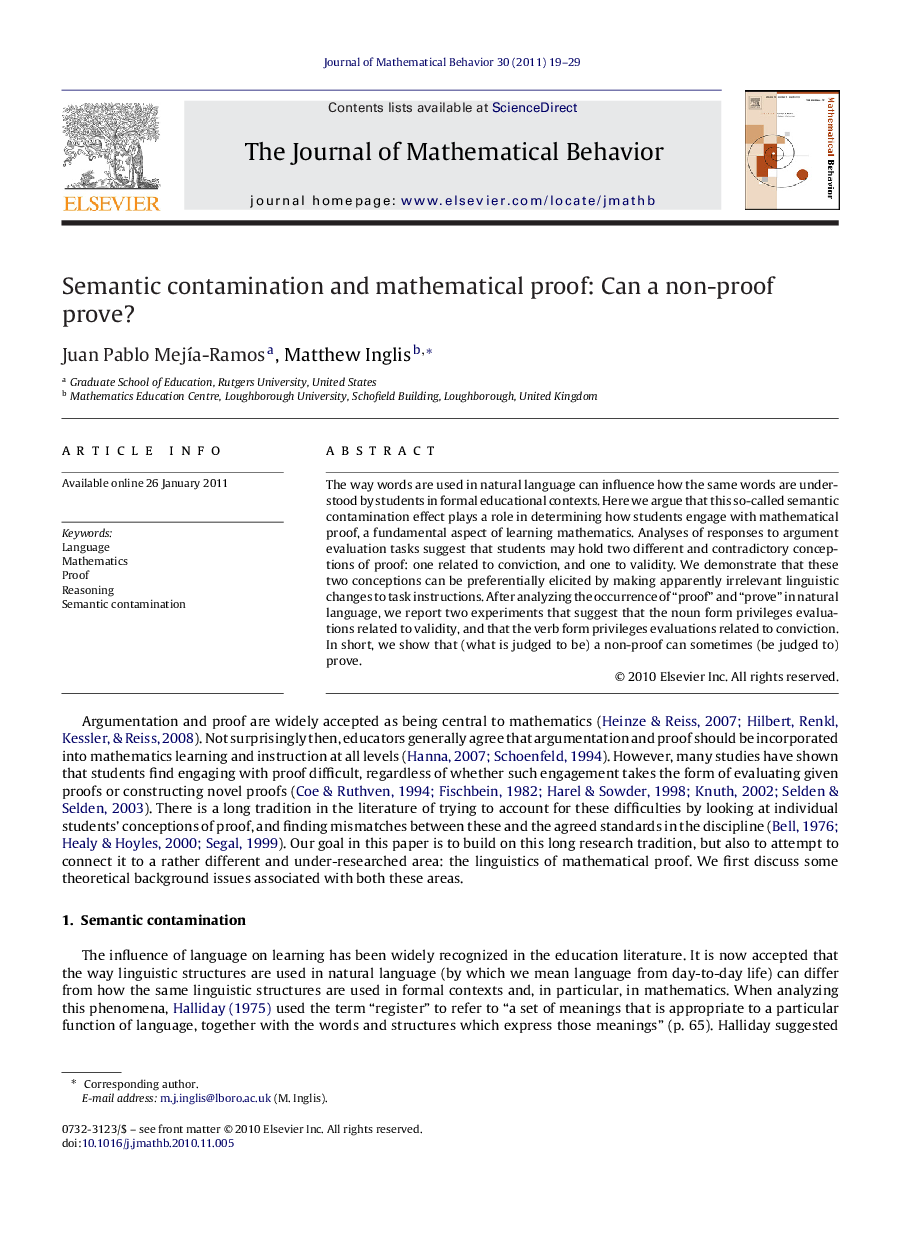| کد مقاله | کد نشریه | سال انتشار | مقاله انگلیسی | نسخه تمام متن |
|---|---|---|---|---|
| 360767 | 1436030 | 2011 | 11 صفحه PDF | دانلود رایگان |

The way words are used in natural language can influence how the same words are understood by students in formal educational contexts. Here we argue that this so-called semantic contamination effect plays a role in determining how students engage with mathematical proof, a fundamental aspect of learning mathematics. Analyses of responses to argument evaluation tasks suggest that students may hold two different and contradictory conceptions of proof: one related to conviction, and one to validity. We demonstrate that these two conceptions can be preferentially elicited by making apparently irrelevant linguistic changes to task instructions. After analyzing the occurrence of “proof” and “prove” in natural language, we report two experiments that suggest that the noun form privileges evaluations related to validity, and that the verb form privileges evaluations related to conviction. In short, we show that (what is judged to be) a non-proof can sometimes (be judged to) prove.
Research highlights▶ In natural language “proof” occurs frequently in specialist registers than “prove”. ▶ “Proof” privileges the validity conception of proof in argument evaluation tasks. ▶ “Prove” privileges the conviction conception of proof in argument evaluation tasks. ▶ Semantic contamination influences learners’ engagement with proof.
Journal: The Journal of Mathematical Behavior - Volume 30, Issue 1, March 2011, Pages 19–29